Omar Sharif was one of the first Arab actors to appear in the biased anti-Arab arena of Hollywood. His talent took him past the bigotry that has denied Arabs roles in major motion pictures, excluded pro-Arab themes and narratives from Hollywood movies, and marginalized Arabs to the sidelines of a biased movie industry. But his legacy is far greater than the racism that continues to plague the racist Hollywood movie industry which continues to face pressures to change. A story you won’t read in America’s mainstream, racist and anti-Arab news media
By Ray Hanania
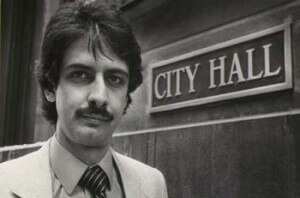
Omar Sharif was the first Arab who was recognized as an Arab playing a major role in a Hollywood movie of any significance.
Despite the strenuous efforts to slander British officer T.E. Lawrence and raise public questions about his morals, the film Lawrence of Arabia cast T.E. Lawrence as one of the few Western military leaders who recognized and respected the rights of Arabs that were so easily sold out by Britain and the United States. It’s success also gave a platform to the movie rise of Omar Sharif.
It was in the telling of the story of T.E. Lawrence in the 1962 epic film that a Christian Melkite Arab from Egypt found his footing to define the face of American Arab Hollywood success. Omar Sharif played the role of the horse riding, swashbuckling Muslim Sheikh “Sherif Ali Ben El Kharish” who befriends Lt. Lawrence after killing Lawrence’s rival Arabian escort.
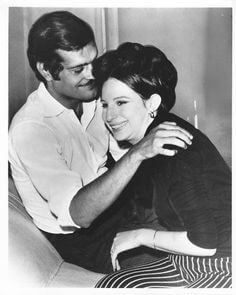
Sharif almost did not get the break out role that launched his career from Egyptian films with his wife, Faten Hamama (also spelled Fatin Hamamah), to the Big Screens in the West. Originally, the role had been offered to German-born actor Horst Buchholz, who didn’t want to wear brown contact lenses to play the role and had movie filming conflicts.
Sharif’s quick stardom from his good looks and key character in the film opened up opportunities for other films and came at a time before pro-Israel censors worked to marginalize Arabs from major Hollywood and TV roles, and positions in the mainstream news media, too. That changed in 1967 when Israel invaded the West Bank and captured East Jerusalem, plans that had been contemplated in the 1950s but were only achievable with the rise of Egypt’s boisterous and loud-mouth Arab Nationalist President Gamal Abdul Nasser.
As tensions increased between Arabs and Jews over the Palestine-Israel conflict, Sharif found himself in an industry that was unfriendly to the Arab World. Hollywood churned out dozens of movies that cast Arabs as sinister villains that Americans were taught to hate, and Hollywood eventually made the “Arab” the iconic image of the modernday terrorist. The first such characters were cast in the viciously anti-Arab 1960 film Exodus, based on the book by Arab hater Leon Uris, but increased in the 1960s, 1970s and 1980s with pro-Israel funding and racistly anti-Arab Hollywood backing.
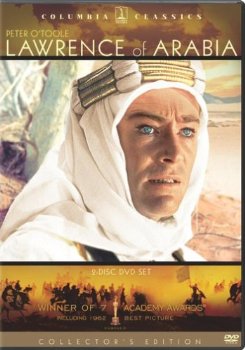
Sharif helped counter that image briefly, but he quickly fell into the social circles that muted his ability to voice support for Palestinian and Arab rights. Eventually, Sharif would avoid all politics, a requirement of any Arab who was expected to be embraced by success in the American media, journalism, movies and society.
Sharif was cast in the lead role in the 1965 romantic film, Doctor Zhivago, playing opposite Julie Christie.
The conflict came to a head in 1967 when Israel attacked Egypt, Syria and Jordan, occupying the West Bank, East Jerusalem, Gaza, the Sinai and the Golan Heights. Israel claimed it was acting in self-defense but the truth was Israel was clever enough to use the bombastic and empty rhetoric of Nasser and the Arab World as a pretext to achieve its ultimate goal of a “Greater Israel.” Nasser was incapable of attacking Israel with any substance. His military was poorly trained, under-equipped, and much of their artillery and weaponry was antiquated, given to them in disrepair by their Soviet sponsors.
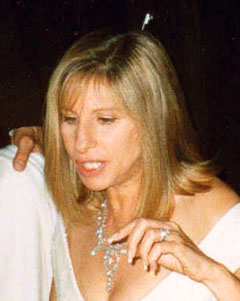
The conflict created tensions for Sharif, who had been cast to play the lead role in another romantic comedy, Funny Girl, that starred one of the Jewish community’s up and coming actresses, Barbra Streisand. Years later, in his 1976 autobiography, Sharif discussed the behind-the-scenes tensions noting that “All the investments in the production were Jewish. The atmosphere of the studio was pro-Israeli and my co-star was Jewish. Most of the newspapers backed Israel. And I was an Egyptian.”
American Jewish movie producer William Wyler (Ben Hur, 1959), and one of the producers of Funny Girl, later also said that there was much consternation in the Jewish community, adding, the 1967 conflict between Israel and Egypt “sent shivers” through Hollywood’s Jewish community. Streisand’s mother even declared that she would not allow her daughter to appear in a film scene “with any Egyptian,” an early attitude that has carried through Hollywood over the years, including in 2002 when Jackie Mason’s wife told the Associate Press that her husband would not appear with this author on a comedy stage because I was “not just an Arab, but a Palestinian.”
To counter the concerns of the American Jewish community and Israel, Sharif agreed to make appearances in the Jewish community expressing support for Israel, while not denouncing his Egyptian heritage. And a photograph was eventually released from the movie Funny Girl which showed Sharif kissing Streisand. The photo caused an uproar in the Arab World and in the American Arab community that was finding roots in a hostile, pro-Israel country. Funny Girl was released in September 1968 and became the highest grossing film that year. It guaranteed Sharif a place on the Hollywood film circuit.
Egyptians and Arabs demanded that Sharif, a Christian Arab, be stripped of his Egyptian heritage and citizenship. But that did not deter Sharif, who went on to have a torrid love affair with Streisand, even though both were married, Sharif to Hamama and Streisand to Jewish American Actor Elliott Gould. Both their marriages ended up falling apart. Streisand and Gould divorced in 1971 and Sharif and Hamama divorced in 1974.
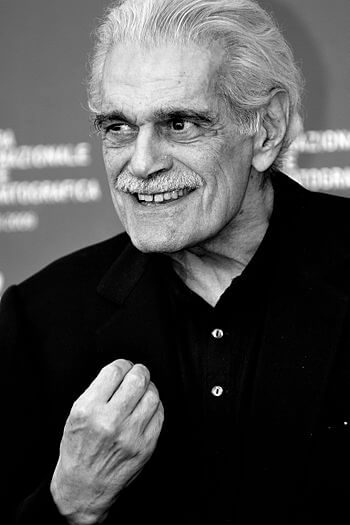
In an ironic twist, Faten Hamama recently died, on January 17, 2015, six months before her ex-husband, Sharif. Once loved by the Arab World, Hamama was later scorned for speaking out in 2011 in support of Egypt President Husni Mubarak and denouncing the protestors and the “Arab Spring.” Many Arabs wanted Sharif to leave the corrupt and racist American film industry and return to the Arab World. Nothing symbolized that more than the often expressed hope in the Arab World that he would reconcile his marriage, turn away from Streisand, reject the pro-Israel and anti-Arab Hollywood, and return to Hamama.
It was President Gerald Ford who reconnected Omar Sharif with Egypt when he introduced the actor to Egyptian President Anwar Sadat, who sold out the Arab cause for fame, favor and fortune for his family in his one-sided deal with Israel’s terrorist leader Menachem Begin.
Omar Sharif (Michel Demitri Shalhoub) died at the age of 83 on Friday, July 10, 2015. His movie career spanned 60 years and included 118 TV and film roles.
Omar Sharif is survived by Tarik Sharif and two grandsons. One grandson, Omar Sharif Jr., acknowledged in March 2012 that he was gay but shocked the Arab World when he disclosed his mother was Jewish. Omar Sharif Jr. had already fled Egypt just before the Arab Spring revolution in January 2011.


- Israelisnipers shooting and killing hospital workers in Gaza - December 11, 2023
- CAIR Condemns Israeli Executions of Wounded, Unarmed Palestinian in West Bank - December 11, 2023
- Arab and Muslim American voters face a “simple choice” between Biden’s inhumanity and Trump’s edgy politics - December 9, 2023













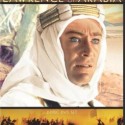
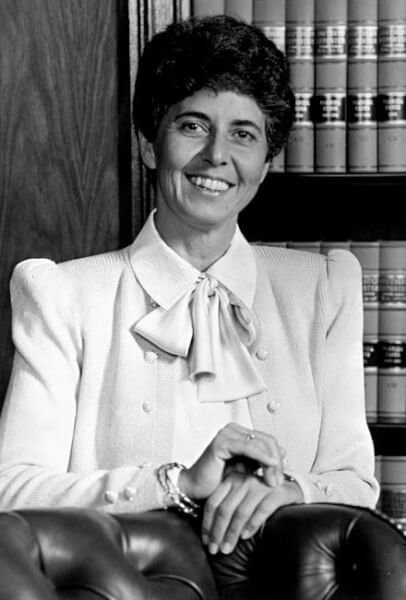




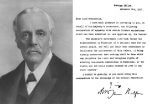



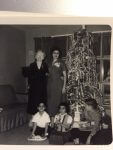


Ray there is much to debate you, but I’ll limit it to this one important fact, Egypt closed the Straits of Tiran, which is an International Water way. This closing was an act of war by Egypt, that enough to justify Israeli actions.
Now Ray time to move on.